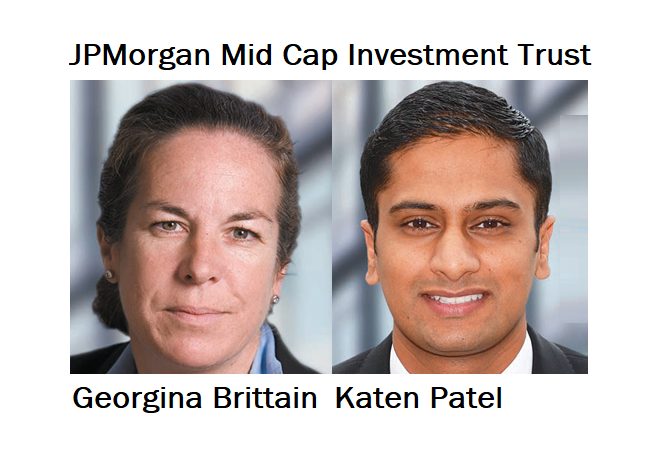JPMorgan Mid Cap Investment Trust has published results for the year ended 30th June 2022. The chairman points out that it was a year of two halves. For the six months (to 31st December 2021), when the story was about the recovery from COVID, the NAV total return was +5.5%, just about matching the return on the FTSE 250 Index (excluding investment trusts) of +5.7%.
The second half of the financial year was all about the market’s reaction to the invasion of Ukraine, with consequent rising commodity and energy prices leading to a surge in inflation well above previous expectations. For the year to 30th June 2022 as a whole the NAV total return was -30.4%, well behind the FTSE 250 Index (excluding investment trusts) return of -16.1%. In addition, the discount widened from 2.1% on 30th June 2021 to 13.6% on 30th June 2022 resulting in a “very disappointing” share price total return of -38.4%.
The portfolio had an unhelpful bias to the consumer discretionary sector which suffered as its trading outlook deteriorated. In addition, ‘growth’ stocks were de-rated (reflecting anticipated higher rates of inflation and the impact of higher interest rates on the valuation of future cashflows). In addition, the trust began 2022 with gearing of 7.7% which amplified the market fall.
Revenue earnings per share increased by 68% from 20.3p to 34.1p. The board has decided to maintain the dividend at 29.5p to help rebuild revenue reserves following the impact of COVID on the revenue account.
Unfortunately, the deterioration in performance came just as the company stepped up its marketing efforts. In the end, 919,040 shares were purchased and held in treasury over the period. These shares were purchased at an average discount to NAV of 12.3%, enhancing the NAV by 5.6p per share for ongoing shareholders.
Extract from the managers’ report
A few of the portfolio’s largest and long-held positions positively contributed to performance over the year, such as OSB and Computacenter, (our two largest holdings at the time of writing), and we also benefited from the outperformance of holdings such as Indivior and Man Group, and the bid for Brewin Dolphin. However, the share prices of a number of our largest positions such as Future, Dunelm, JD Sports and Games Workshop declined precipitously as the market de-rated these consumer exposed names, despite a notable lack of downgrades from company guidance. With hindsight, we should have acted more quickly, but our analysis of the specific outcome for these individual companies was very much counter to the market perception.
While we did reduce the sizing in several of these positions, the magnitude of the market de-ratings (averaging a 35% decline on minimal analyst downgrades) has led us to maintain holdings in all of the above names, given their current valuations and long-term prospects.
That said, we have of course made a number of significant changes to the portfolio in 2022, given the dramatic change in outlook in both inflation and consumer confidence in the first quarter of 2022. Among the many changes to the portfolio, we have increased the energy exposure with positions in Energean and Serica (gas producers) and Harbour Energy (oil and gas producer), and also bought into the defence company Chemring and the utility play, Telecom Plus. At the same time we have significantly reduced our consumer exposure as the outlook worsened. Among the exits from the portfolio are Moonpig, Curry’s, Mitchells & Butler and Restaurant Group. We have also sold out of DIY companies such as Wickes and Travis Perkins. Other sells of note have included Royal Mail and Rank Group.
Overall we have significantly reduced our exposure to the UK consumer, but continue to believe that a number of consumer-facing companies will weather the economic downturn well and continue to take market share; and we strongly believe this is not reflected in current share prices. At the same time, we have increased our holdings in a number of more counter-cyclical names, such as Indivior, Beazley and Serco. We believe we have positioned the portfolio to have a balance between the more defensive and counter-cyclical companies and the very undervalued more cyclical holdings; on all the key metrics that we look at, the portfolio compares favourably with the benchmark, which will hopefully serve us well when market sentiment shifts.
JMF : Very disappointing year for JPMorgan Mid Cap
